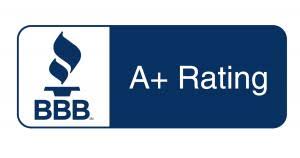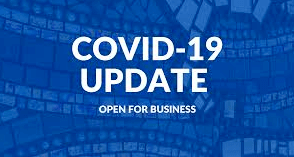Bankruptcy automatically stops debt collection by creditors, and can help with all of the following debt problems:
1. Debt Collection by the Original Creditor
Most clients are already delinquent on a number of bills by the time they contact our office. For credit cards and unsecured loans, the original creditor will generally attempt to collect the debt directly from the borrower for about six months. If the creditor is not able to collect the debt, it will then typically “charge off” the account. Many people think this charge off means that the debt is being canceled. However, this is not the case. The charge off is simply a tax designation taken by the creditor. After the charge off, the creditor will then either sell the account to an outside investor or hire a collection agency. As long as the account is being collected by the original creditor, there are not many restrictions on the creditors ability to harass the debtor. There are some state laws governing the activities of creditors, but these laws are not particularly strong.
2. Debt collection by a Collection Agency
At some point, almost every debt ends up in the hands of a debt collection agency. While most of the collectors employed by these agencies do follow the law, there are some that are simply ruthless and will say whatever they think will scare the debtor into paying. Threats are made regarding criminal proceedings, seizure of the debtor’s home, car or other assets. The truth is that there is absolutely nothing that a collection agency can do to you other than harass you. Only a creditor with a judgment has the right to pursue assets, and even then, the rights of the creditor are limited. There are significant penalties that can be imposed against a collection agency that violates your rights by harassing you. If you are experiencing any type of collection agency harassment, we can help.
3. Debt Collection Lawsuits
If the debt cannot be collected by the original creditor or collection agency, the account may be turned over to a collection attorney to commence a lawsuit against you. The debt collection lawyer will arrange to have you served with a summons and complaint. You will then have anywhere from 10-30 days to respond to the complaint. Although you have the right to defend these actions, there is generally not much point in doing so. This is because even if the creditor is treating you unfairly in a moral sense, the contracts are almost enforced to the letter by the courts. So, for example, if your account was canceled because you were one day late or if your interest rate was raised from 10% to 30% because of a default, the creditor is going to win because the “fine print” in their contracts give them the right to these types of things. The bottom line is that you will probably lose the lawsuit, and you should not pay a lawyer to defend it unless there is a rock-solid defense (such as a Statute of Limitations defense). Nevertheless, you should also not simply ignore lawsuits. Although you can never be held criminally liable for not paying credit cards or loans, the failure to answer a lawsuit will eventually result in a money judgment against you. When your financial situation has deteriorated to the point that you are getting sued, it is almost certainly time to consider Chapter 7 or Chapter 13 bankruptcy.
4. Judgments
The end result of a lawsuit is usually the entry of a money judgment. Many people think that this judgment is only good for 10 years. This misconception is probably based upon the fact that a judgment can only be reported on your credit report for 10 years. However, the reality is that a money judgment is valid for 20 years from the date that it is entered, and the creditor has six years from date the debt is last paid to start a lawsuit against you. Therefore, in theory, an unpaid debt can be enforced for up to 26 years. The judgment gives the creditor a number of rights, but the most important are the creation of a lien against your home or other real estate, the garnishment of your wages, and the seizure of your bank accounts. These will be discussed below.
5. Judgment Lien against Real Estate
The entry of a money judgment at the County Clerk’s office creates an automatic lien against any real estate that you own in that county. The lien is good for 10 years and can be renewed for an additional 10 years. While it is very unlikely that the creditor will actually try to sell your home (because of the exemption available to protect it), the judgments must be dealt with at the time the home is sold or refinanced. We have seen dozens of instances in which people have paid thousands of dollars on an old judgment liens unnecessarily. You should never allow judgment liens to “pile up” against your property. As you pay down the mortgage against the home, your are increasing the amount of equity available to satisfy the judgment. By filing either a Chapter 7 or Chapter 13 bankruptcy, it is almost certain that you can eliminate the liens against your home.
6. Wage Garnishment
Of all the collection rights available to a creditor, this is the one that is probably most likely to get the client’s attention. A judgment creditor has the right to garnish 10% of your gross pay so long as you make at least 40 times the minimum wage (about $300 per week). So, if you are grossing about $500 per week, the creditor can take more than $200 per month from your wages. This can well make the difference in whether you are able to pay your mortgage, car payment, or utilities. Fortunately, a wage garnishment can be stopped at any time, even months after it has started. If you have a wage garnishment against you or a judgment that you are afraid will lead to one, we encourage you to contact us right away.
7. Bank Account Restraint
A judgment creditor has the right to place a hold on any bank accounts bearing your name. Even if the account is co-owned with someone else, the judgment creditor can place a hold on the entire balance in an amount up to twice the judgment balance. Fortunately, there are now automatic exemptions that protect the freezing of bank accounts containing exempt funds such as social security, pension, or workers’ compensation. However, these exemptions do not give unlimited protection, and you are basically at the mercy of your bank to properly implement the exemption. Otherwise, the account may still be frozen until you can prove that it contains exempt funds. In our opinion, people should not have to live with even the slightest fear of a bank account restraint. A Chapter 7 or Chapter 13 bankruptcy filing will put an end to restraints permanently.
8. Mortgage Foreclosure
Typically, a mortgage lender will consider commencing a foreclosure action against your home or other real estate when you fall 3 months or more behind on your mortgage. Fortunately, the foreclosure process in New York takes a long time – about six months on average from the time it is started. If you are served with foreclosure papers, do not panic. It does not mean that you are going to lose your home. We can protect your home from foreclosure at any point up until the actual foreclosure sale. We once had a client that came to us on the morning of his foreclosure auction, and were able to stop his sale by filing a bankruptcy petition exactly two minutes before the scheduled auction time. If you are behind on your mortgage, you should consult with a bankruptcy attorney as soon as the foreclosure starts (or even when you first fall behind on the mortgage payments). The delay in filing a bankruptcy may cause you to incur thousands of dollars in bank attorney fees and costs unnecessarily.
9. Auto Repossession
If you are behind on your car payments, your lender will typically consider repossessing the vehicle when you fall 60 days behind in payments. Some lenders wait longer than 60 days, but some will actually take the car back if you are even a few weeks behind (especially the “buy here, pay here” lenders). If you are struggling with your car payments, Chapter 13 will give the opportunity to restructure the loan. In many case, we can significantly reduce the amount you have to pay back, and we can almost always lower the interest rate and monthly payments.
10. Income Tax Debts
Many people first come to see us when they are served with an IRS wage garnishment. Unlike a typical judgment creditor, the IRS can seize almost all of your paycheck. We have seen garnishments exceeding 50%. However, many people do not realize that certain types of income tax debts can be completely eliminated in bankruptcy (especially older tax debts). Even if you have worked out payment arrangements with the IRS or NewYork State to pay back taxes, Chapter 13 bankruptcy can give you better payment terms. More importantly, any tax debt paid through a Chapter 13 plan will be paid without interest, and any penalties that were added to the tax debt may be mostly eliminated. We think that Chapter 13 is significantly underutilized as a tool to deal with tax liabilities.







